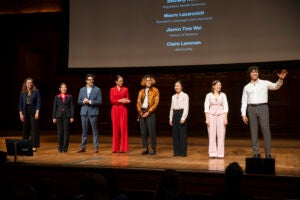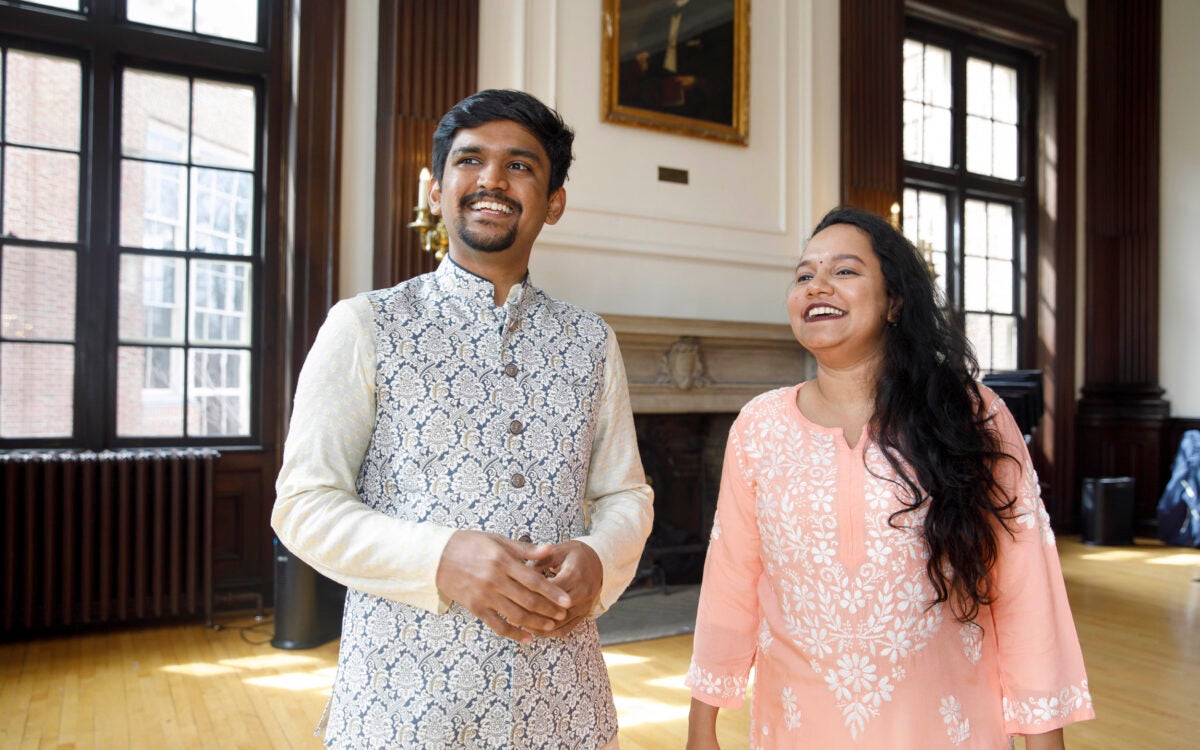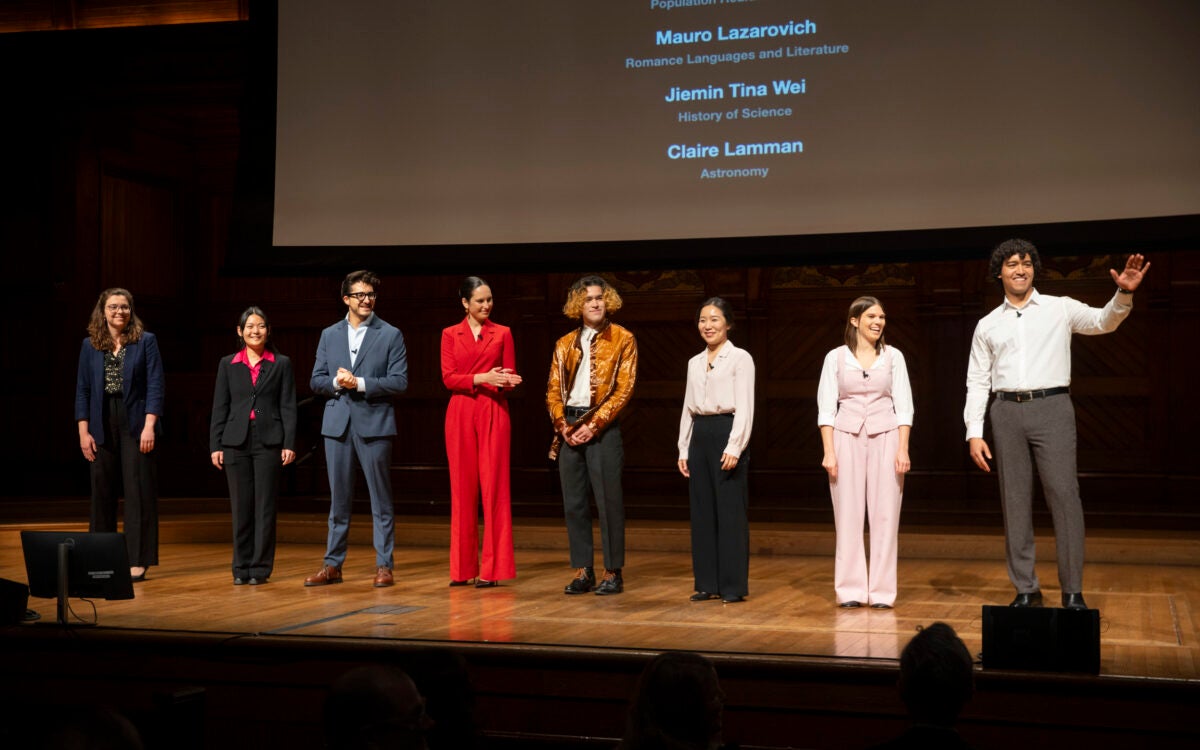Advances in stem cell biology presented at symposium
Symposium aims to bring together wide, diverse community of researchers
Stem cell science is revolutionizing the field of cancer biology, changing the understanding of the structure of some tumors, and potentially shifting the treatment emphasis from eliminating all tumor cells to the destruction of specialized cancer stem cells believed responsible for tumor growth.
These findings were among several presented Dec. 2 at the Harvard Club of Boston during the Second Annual Tony and Shelly Malkin Stem Cell Symposium, which drew more than 300.
The symposium, titled “Stem Cell Biology and Therapy in Organ Systems: Challenges and Opportunities,” was the second annual event aimed at bringing a broad community together to discuss stem cell research.
Harvard Stem Cell Institute Co-Directors Douglas Melton, the Thomas Dudley Cabot Professor of the Natural Sciences, and Professor of Medicine David Scadden opened the event, giving a brief summary of progress at the institute in the past year.
The Stem Cell Institute has 38 principal faculty, 42 affiliated faculty, and more than 600 affiliates, Scadden said. It holds regular inter-laboratory meetings to foster exchanges of ideas among researchers and has established core laboratory facilities. It hosts a series of discussions on ethics in society and a summer student program, and has begun giving out seed grants to foster work in innovative areas.
“We are continuing to grow this program, and its success is dependent on our ability to engage the broader community,” Scadden said.
The presentations were moderated by Kenneth Chien, director of the Cardiovascular Research Center at Harvard-affiliated Massachusetts General Hospital.




